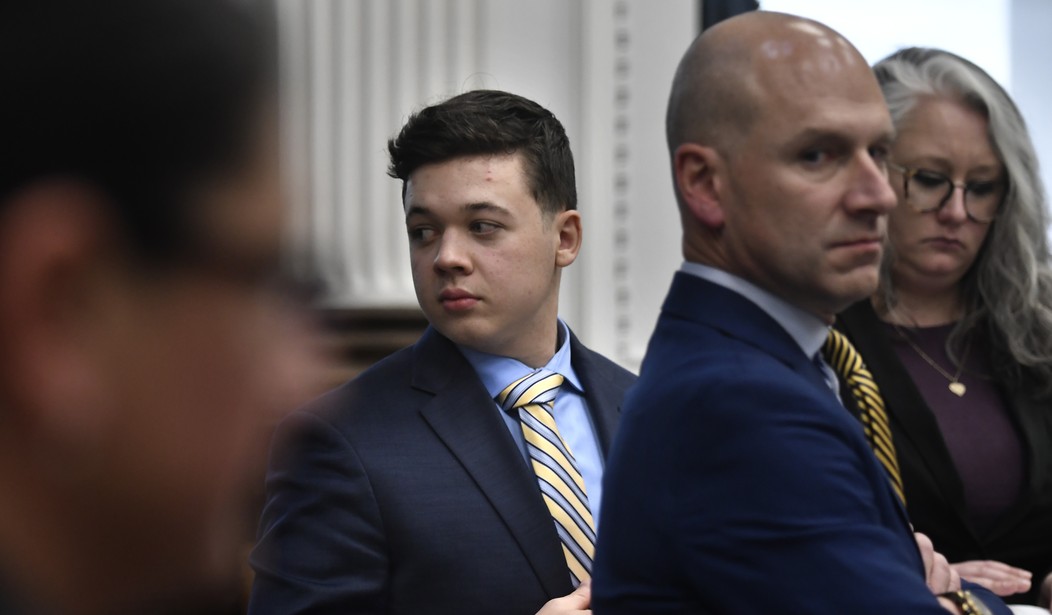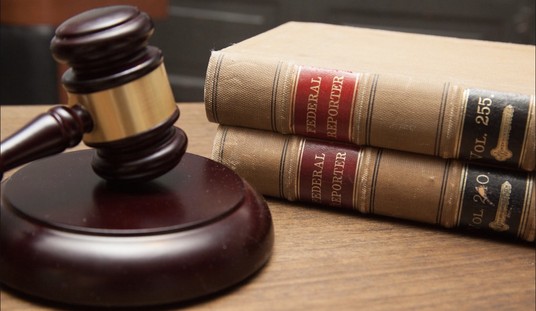Gaige Grosskreutz, one of three men who was shot then-17-year old Kyle Rittenhouse during the Kenosha riots last August, and the only one to survive his injuries, took to the stand on Monday with prosecutors hoping to use his first-hand account of that night to portray the teen as the aggressor that night; first provoking Joseph Rosenbaum and then murdering him when Rosenbaum lunged at him, then shooting and killing Anthony Huber when the second protester tried to prevent Rittenhouse from getting away. Grosskreutz, who was shot by Rittenhouse moments after Huber was, would be the witness who could provide the jury with a firsthand account of why Rittenhouse wasn’t acting in self-defense.
Instead, like so many of the prosecution’s witnesses that testified during the first week of the trial, Grosskreutz completely undercut the case against Rittenhouse and helped bolster the teen’s claims of self-defense.
The problems with Grosskreutz’s testimony began when he acknowledged that he himself was carrying a firearm that night, one that he wasn’t licensed to carry because his permit had expired. Grosskreutz claims not to have been aware of that at the time, but also failed to disclose to police during his first and second interviews that he not only was armed but had his gun in his hand when he approached Rittenhouse.
Grosskreutz said under questioning from prosecutors that he believed Rittenhouse might have been an “active shooter,” but told defense attorneys under cross examination that he really had no direct knowledge that Rittenhouse had committed a crime. In fact, he said that Rittenhouse actually ran by him and said something about “the other guy” shooting first (remember that a gunshot was fired into the air from behind Rittenhouse moments before Rosenbaum reached for the teen’s rifle and was fatally shot) and that Rittenhouse was going to the police.
But Grosskreutz, for whatever reason, decided to pursue Rittenhouse himself, and drew his gun as he ran behind. Grosskreutz described seeing Rittenhouse fall and an unknown man try to kick the teen in the head, as well as watching Anthony Huber whack Rittenhouse in the head with a skateboard. Grosskreutz in fact told defense attorneys that one of the reasons why he was running to the scene gun in hand was because he was concerned that Rittenhouse could be injured by individuals attacking him.
If that was a concern of Grosskreutz, imagine how much of a concern it must have been for Rittenhouse. And in what is likely the defining moment of the case so far, defense attorney Corey Chirafisi got Grosskreutz to admit that he himself wasn’t shot by Rittenhouse until the teen had reason to believe Grosskreutz posed a threat to his life.
Chirafisi: When you were standing three to five feet from him with your arms up in the air, he never fired. Correct?
Grosskreutz: That is correct.
Chirafisi: It wasn’t until you pointed your gun at him, advanced on him, with your gun in your hands now pointed at him, that he fired, right?
Grosskreutz: (pause) Correct.
I’ve said all along I’m keeping an open mind about this case, but it’s getting harder and harder to do so. And this was just the biggest of several concerning details of Grosskreutz’s testimony.
In neither of his interviews with police did Grosskreutz mention the fact that he had a gun in his hand or on his person when he was shot by Rittenhouse. Grosskreutz claimed on the witness stand that the first interview with police had taken place shortly after he’d come out of surgery, and he wasn’t really thinking clearly But once again Chirafasi was able to poke holes in that claim by pointing out that Grosskreutz had the presence of mind to refuse to tell police where he worked; something Grosskreutz said he did because he was concerned for his personal safety. It seems odd that Grosskreutz would forget such an important detail while his brain was still clear enough to engage its critical thinking skills. And the fact that Grosskreutz also declined to mention that he was armed while he was shot in his $10-million civil suit against the city of Kenosha is also pretty telling. In fact, Grosskreutz’s attorney in the civil case was present in the second police interview, and she advised her client that day to not answer any of the police’s questions about the shooting. That would include any questions about Grosskreutz’s own gun handling that night.
Grosskreutz claims today that he had his hands raised because he was attempting to surrender to Rittenhouse, but lowered his gun when he saw Rittenhouse re-rack the slide of his rifle. Video from the scene does show Grosskreutz with his hands in the air a split second after Huber was shot, but one second later his hands are down while Rittenhouse’s rifle is now pointed towards the ground. And it’s not like this is happening in a vacuum; there are at least a dozen other individuals surrounding Rittenhouse as he lays on the street, but Rittenhouse doesn’t wildly spray round after round. He is focused solely on those individuals who appear to be posing a threat to his physical safety; something that even Grosskreutz admitted described Anthony Huber.
During the last bit of cross examination, Grosskreutz was asked about a comment made by his then-roommate while Grosskreutz was still recovering in the hospital. Jacob Marshall posted a picture from Grosskreutz’s hospital bed, and in the comments stated that his friend’s “only regret was not killing the kid and hesitating to pull the gun before emptying the entire mag into him.” From the stand, Grosskreutz denied ever making that statement, and in fact turned and appeared to look directly at the jury while doing so. It was an odd, overly theatrical moment, and based on some of his earlier testimony I don’t know how credible it was. It will be interesting to see if the prosecution risks calling Marshall to explain why he allegedly lied about what his roommate said, or if they try to just move on.
Grosskreutz may have believed he was stopping an active shooter, coming to the defense of someone being attacked, or a combination of the two depending on who’s asking the questions, but at the end of the day, Grosskreutz isn’t the one on trial. Kyle Rittenhouse is. Grosskreutz might believe he was doing the right thing in chasing after Rittenhouse that night. Heck, he may very well have his own valid self-defense claim, but that doesn’t negate Rittenhouse’s own, and his testimony on Monday morning did nothing to convince me that Rittenhouse wasn’t reasonably acting in defense of his life when he shot Rosenbaum, Huber, and Grosskreutz in those chaotic moments during the Kenosha riots.









Join the conversation as a VIP Member